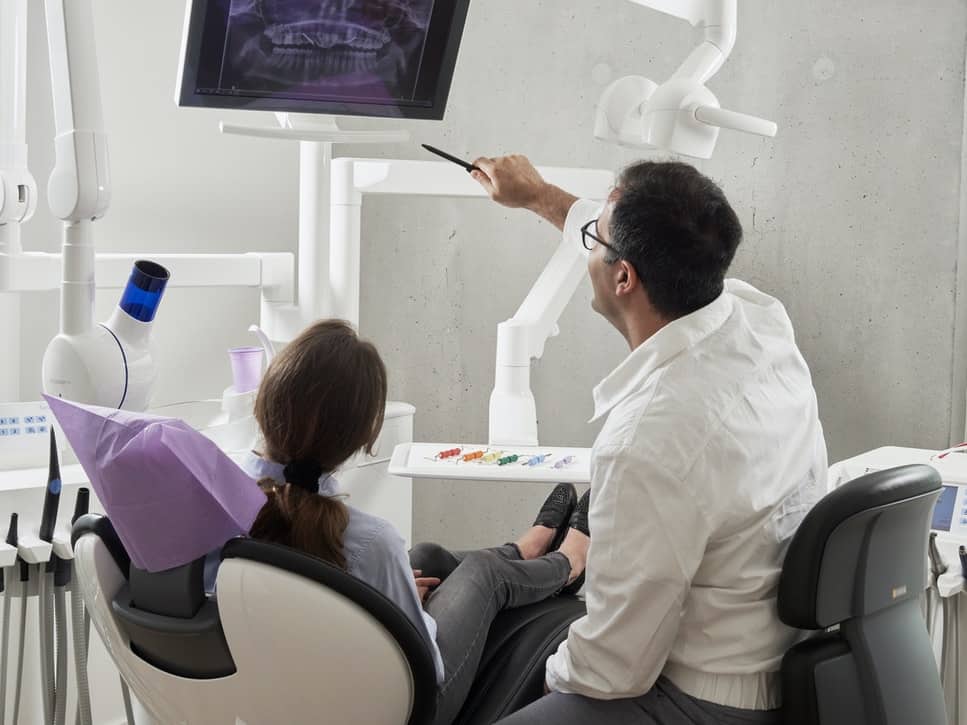10 Considerations for Selling Your Dental Practice

Selling a dental practice can be a daunting task at the best of times, and many owners may not be aware of the relevant considerations when preparing for and carrying out such a sale.
Whether you have entered discussions to sell your dental practice or wish to sell your practice in the coming years but do not know where to start, the 10 considerations below will help ensure you get what you want out of a sale while maximizing the value of your clinic and allowing for a smooth transition to the purchaser.
-
Ownership Structure
A major consideration early on is the ownership structure of your practice; specifically, consider the number and type of shares owned by individuals. If your dental practice is structured correctly, you may be able to minimize the tax payable on a sale significantly so that you keep the vast majority of your sale proceeds.
For instance, having certain shares owned by family members may have beneficial tax consequences in the event of a sale while complying with the applicable legislation regarding the share ownership of dental corporations.
-
Agreements with Other Dentists
Have you had discussions with or made promises to any associate dentists at your clinic or any outside dentists with respect to the sale of your practice? Be mindful of such discussions and promises as they may restrict the ultimate value of your practice or your ability to sell. Although granting someone the right to match any offer for the purchase of your dental practice may not have short-term implications, any such arrangements become material concerns as you move forward with a sale.
-
Expectations Following the Sale
Upon completion of the sale, do you intend to fully retire, reduce your work hours or continue on as a full-time associate at the clinic? Consider what you would like your professional life to entail following the sale, as that will tie into the timing of the sale and the value of your practice to a purchaser.
Note that, in almost every instance, a purchaser will require a non-competition covenant limiting your ability to practise for a competitor for a period of time following the sale.
Agreeing to remain at the clinic in a full-time or significant capacity for a number of years following the sale will typically help increase the value that a purchaser is willing to pay. On the other hand, walking away permanently once the sale is completed tends to significantly reduce the purchase price. As such, it is often beneficial to consider selling your practice before you intend to retire. While the ideal timing of a sale and the valuation of your clinic will be nuanced depending on the nature and structure of your practice, it is common to see an owner agree to continue practising at the clinic for five to seven years following the sale in order to maximize the purchase price.
-
Increasing Valuation
Because most of the value of a dental practice comes from the clinic’s goodwill, there are a number of ways to help increase the value of your clinic to a purchaser. In addition to staying on as an associate dentist following the sale, you should consider the following best practices to maximize the value of your clinic :
- keeping staffing costs in check in the years leading up to a potential sale;
- ensuring that your balance sheet accurately reflects your clinic’s business operations and nothing else; and
- ensuring that your dental business is sustainable following a sale by properly documenting agreements with associate dentists working at your clinic and entering into other contracts as appropriate.
-
Choosing a Purchaser
Three types of potential purchasers for your dental practice generally include:
- associate dentists currently working at your clinic;
- outside dentists (who often already have clinics of their own); and
- dental service organizations (often referred to as “dental consolidators”).
Selling to another dentist typically comes with a lower purchase price due to availability of financing, but may offer more flexibility insofar as deal terms are concerned. Alternatively, dental consolidators are generally able to offer more cash up front and often additionally offer equity in their company.
There are, of course, exceptions to the above, and each prospective purchaser will be able to offer different terms. The ideal purchaser for your clinic depends on what you want out of your sale and is ultimately a personal decision you must make from weighing the options available.
-
The Clinic Premises
An important aspect of any sale is the premises from which the dental clinic operates. If you own the dental clinic premises, the sale of the practice may present an ideal opportunity to sell the real property as well. Alternatively, you may want to retain the property and act as a landlord to the purchaser of your clinic.
If you lease the dental clinic premises, note that a buyer will often want to ensure there is a long lease term remaining, such as five or ten years. Another pertinent consideration if you lease the premises is whether there are onerous assignment or change of control provisions which may allow the landlord to withhold its consent to a transfer of the lease.
-
Stabilizing EBITDA
Dental clinic valuations are almost always a product of the earnings before interest, taxes, depreciation and amortization (EBITDA) of the practice. A stable EBITDA in the years leading up to a sale tends to indicate a lower risk for the purchaser which may often equate to less of the purchase price being dependent on an earn-out mechanism and, instead, a greater portion being paid on closing.
The COVID-19 pandemic has substantially affected business stability, as further discussed in the last section below.
-
Due Diligence
The due diligence process involved in the sale of a dental practice is usually onerous and has many components. Well-organized records and efficient management systems will allow for an easier due diligence process and, in turn, lower transaction costs for the selling dentist. To that end, keep a copy of all service contracts and other third-party contracts on file, keep employment information up-to-date and make sure the clinic’s financials are accurate and clear.
-
Liabilities
Purchasers and the lenders of purchasers typically require all debts and liabilities of the dental practice to be paid out (either prior to the sale or on the closing of the sale using the purchase price funds) and all related security to be discharged. Consider this when making financing and equipment leasing decisions relating to the practice in the years leading up to a sale.
-
COVID-19
There is no doubt that the COVID-19 pandemic has created novel considerations for anyone who is considering selling their dental practice. One of the primary concerns is how the dental practice will be valued; will the EBITDA from prior to COVID-19 be used or will the valuation account for the uncertainty surrounding the practice’s ability to generate the same EBITDA once the COVID-19 pandemic has passed? Many dental practice sales occurring since the onset of COVID-19 have addressed this by allocating a larger percentage of the purchase price to an earn-out mechanism.
Another consideration in light of COVID-19 is the effect that a mandated shutdown of all dental clinics will have on the scheduled closing date or on any earn-out mechanism subsequent to the sale. Given the material risk of mandated closures, these matters require careful thought and should be addressed by the parties early on in the sale process.
The corporate/commercial lawyers at MLT Aikins have considerable experience advising on the sale of dental practices and would be pleased to assist you with navigating the intricacies of such transactions.
Note: This article is of a general nature only and is not exhaustive of all possible legal rights or remedies. In addition, laws may change over time and should be interpreted only in the context of particular circumstances such that these materials are not intended to be relied upon or taken as legal advice or opinion. Readers should consult a legal professional for specific advice in any particular situation.






